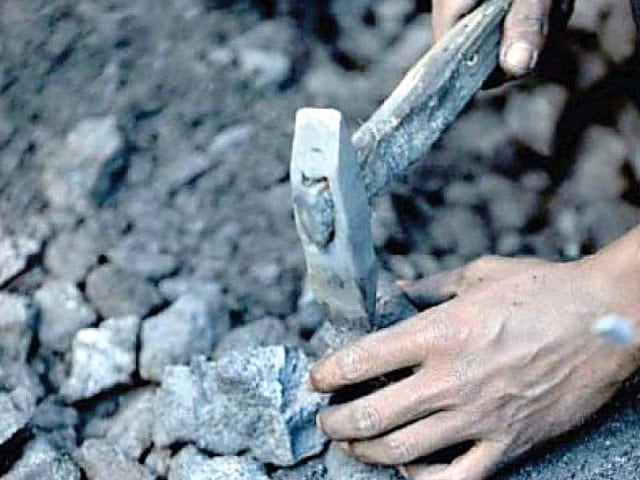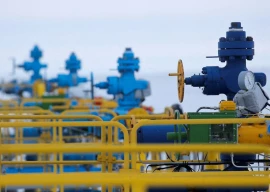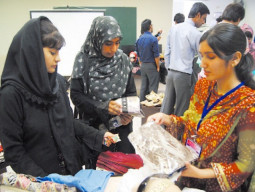
The Russian foreign minister visited Pakistan a few days ago and it was reported in the press that he offered a “blank cheque” of economic cooperation to Pakistan.
The development can prove to be a game changer. This article is an attempt to highlight what is required to achieve that in the energy sector.
Russia, the land of literary giants like Tolstoy, Dostoevsky and Boris Pasternak, astute reformers like Peter the Great and strategists like Lenin and Trotsky, has a rich history. It can teach us a lot including a few lessons in diplomacy, eg while Pakistan was fully aligned with the West, it extended full support to Islamabad in establishing OGDCL in 1961.
In the early 1970s, it helped Pakistan in establishing Pakistan Steel Mills (PSM), which was commissioned by Russian engineers in 1981, ie at the peak of Afghan war. Its handling of the crisis with Turkey in 2015 is itself a lesson in considered restraint.
Russia has been offering economic cooperation to Pakistan for the past more than a decade. A delegation, led by the foreign minister, visited Pakistan in 2012. The media reported the signing of a number of investment-related memoranda of understanding (MoUs) during the visit. In addition to the cooperation in PSM, Railways, etc, they covered power, Thar coal development and North-South gas pipeline.
Similarly, an MoU was signed with Gazprom in 2017 for potential investment of $4 billion. It was preceded by an MoU for setting up a refinery in Khyber-Pakhtunkhwa.
Later in September 2018, the two countries signed another MoU for a 1,500km, $10-billion offshore gas pipeline from the Middle East to Pakistan including underground gas storages. In February 2019, during visit of a high-level Russian delegation, the local and international media reported planned investment of $14 billion by Russia in the energy sector. In December 2019, a high-powered 64-member delegation, led by the Russian trade minister, visited Pakistan again. During the trip, options of commercial synergies with Gazprom, Tatneft and Lukoil were discussed in addition to possible investment in other sectors.
Russia & other countries
Russia’s bilateral trade with Pakistan values at only $0.6 billion and the same with Bangladesh is $1.2 billion and with India, it is $11 billion and is targeted to rise to $30 billion by 2025.
TurkStream was announced in December 2014 through an MoU between Gazprom and Botas, Turkey. Thereafter, despite the plane incident of 2015, Russia and Turkey signed a firm agreement in October 2016 and after construction, gas sales commenced on January 1, 2020 (system capacity: 3,000 mmscfd). The project also involved the laying of two parallel 930km pipelines through the Black Sea. The conception-to-commencement of sales (February 2003) period of Blue Stream - the earlier gas transmission line from Russia to Turkey - was also almost the same, though the scope of TurkStream is at least twice.
In August 2019, a large delegation of India comprising representatives of 140 companies visited Russia. The two sides planned to cooperate in a number of ventures in the Russian Far East. Also, ONGC secured 20% equity in the $10-billion Sakhalin-1 oil and gas project in 2001. The field produces 250,000 bpd of oil and has gas reserves of 17 trillion cubic feet (tcf).
With a few additional strategic acquisitions, Indian investment in Russian oil and gas assets now stands at $15 billion. India has recently opened a dedicated energy office in Moscow to further augment this footprint.
Russia & Pakistan
Except for the North-South pipeline, which appears to be a firm project now, most of the MoUs and proposals still appear to be in the feasibility phase. Thus, a number of associated aspects are pending conclusion. These include their commercial dimensions, execution models, firm agreements, execution schedules, etc. The given status needs a thorough review and adjustment accordingly, especially in light of above examples. It goes without saying, though, that any such opportunity requires a well-rounded professional capacity to achieve its optimal realisation.
Any deficiencies in this regard severely affect associated discussions, negotiations and decision-making. An analysis of pertaining challenges at this yardstick is essential for the above adjustments.
It is obvious that even realising half the above opportunities will radically upgrade Pakistan’s economy, which defines their priority. If others can do it as demonstrated above, then we also can.
Therefore, it is proposed as follows: One, a high-level team of hardcore energy professionals (engineers, geo-scientists, SCM specialists, etc) who have managed large value chains is essential to support the ascertainment of outstanding issues, development of concrete options, followed by required negotiations with Russian teams and then playing central role in execution.
Two, we have so far miserably failed to harness our rich mining potential for economic development due to lack of modernisation and technology whereas Russia has a highly developed mining sector with annual exports of $53 billion.
We need to look for commercial synergies with them in some targeted sectors such as diamonds, rare metals, etc along with strategic partnership with PMDC with the target of converting it into a modern corporate machine.
Three, we may look for avenues for strategic partnerships between Gazprom and SNGPL, SSGCL and ISGS in international projects. This would open up much-needed diversified avenues of revenue for them.
Four, the government has plans to offload some of its equity in E&P companies. We may offer the said equity to Russian companies along with possible synergies in international ventures. India is already considering this option for some of their PSEs. I am sure that our new energy minister is fully aware that his new assignment provides much more room for performance vis-a-vis the previous ones and opportunities like the above are available in abundance, which can help him in causing a major turnaround in the economy.
However, to identify, develop and expeditiously realise them, he needs a core team of world-class energy professionals having proven experience of performance delivery.
The writer is a petroleum engineer and an oil and gas management professional
Published in The Express Tribune, April 26th, 2021.
Like Business on Facebook, follow @TribuneBiz on Twitter to stay informed and join in the conversation.




















COMMENTS
Comments are moderated and generally will be posted if they are on-topic and not abusive.
For more information, please see our Comments FAQ